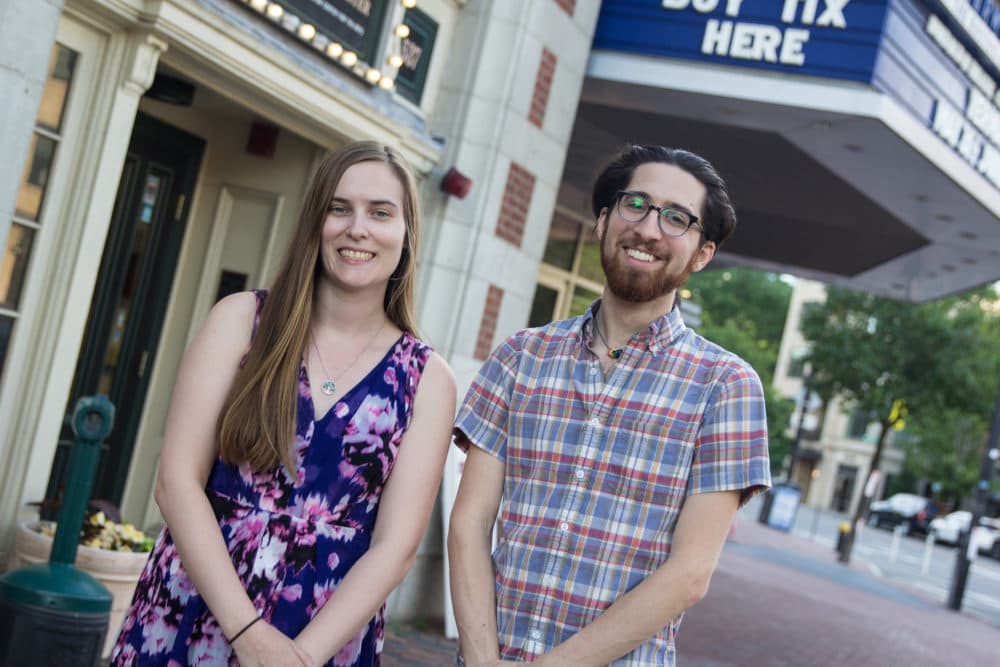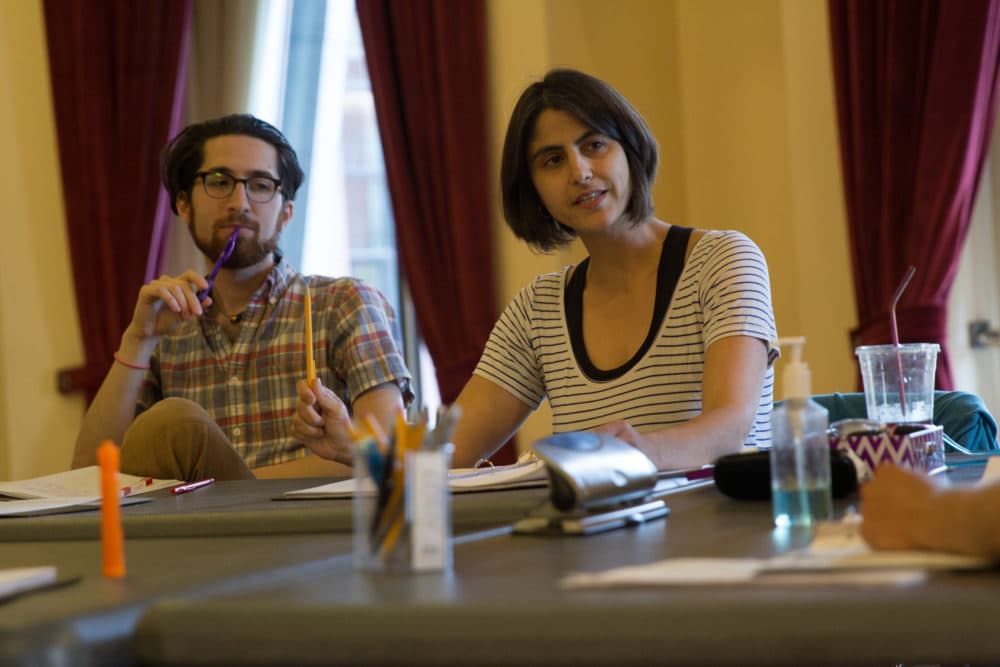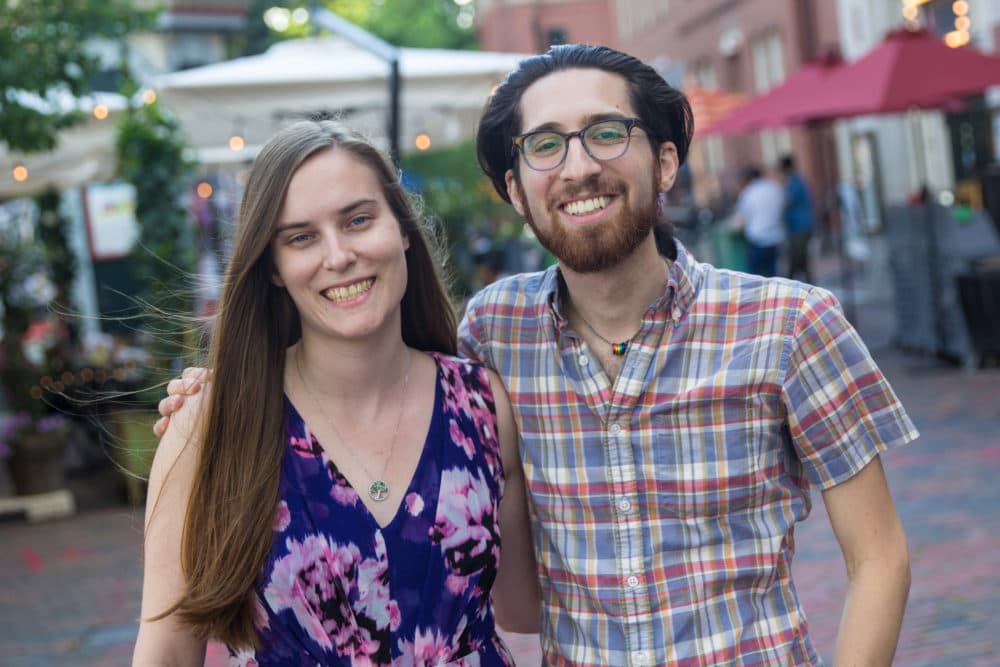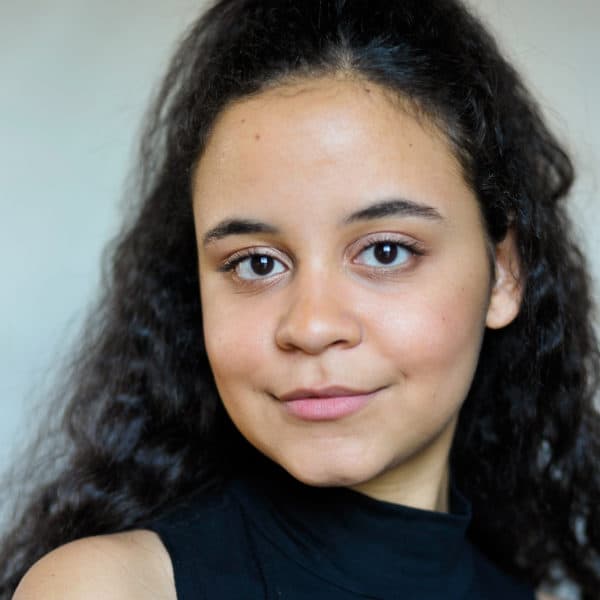Advertisement
'The Boston Project' Supports Local Playwrights Writing About Boston Issues

Rapid gentrification, a frighteningly rampant rodent population, backed up T lines, and a supposedly progressive identity — these are just a few issues constantly rattling around the minds of Bostonians.
Local playwrights MJ Halberstadt and Laura Neill also have Boston on the brain. They have soaked up the city and taken it to the page to write two new plays that confront Boston’s major challenges.
Halberstadt and Neill are part of The Boston Project, an incubator program at SpeakEasy Stage that provides support to local playwrights producing plays about Boston-based issues.
Each year since 2016, SpeakEasy Stage selects two playwrights to spend a year developing new scripts. The theater company provides the playwrights with resources like a team of actors, directors, and dramaturgs as well as organized table-reads throughout the year to flesh out their plays. The process for Neill and Halberstadt culminates in public staged readings this week.
The Project also chooses one additional playwright from the previous year to continue development of their play. Phaedra Michelle Scott returned this year to continue working on her play, “DIASPORA!"

Pascale Florestal, Boston Project Coordinator, said that the project’s initiative is “to give artists the opportunity to speak to what’s happening in our communities right now and bring other people to the conversation of how we are dealing with [issues] in our city.”
Halberstadt was motivated by Boston’s misleading reputation as a liberal city. Based on his experiences in other cities, Halberstadt noticed that “Boston is behind in terms of queer community and queer spaces,” despite its connotation as a progressive and inclusive town. “A lot of my characters are grappling with feeling let down by a city that is supposedly liberal but really isn’t making space for them in a meaningful way.”
Gay bars and nightlife have become a staple for LGBTQ+ folks to meet, but there is a lack of queer communal spaces that do not involve alcohol, like cafes and bookstores. This dearth of non-nightlife, explicitly queer spaces leave LGBTQ+ youth, sober individuals, or even the more introverted disconnected, Halberstadt said. These meeting places, once common, have struggled to compete with thriving bars and online retailers. Boston’s last gay bookstore, Calamus Bookstore, closed in 2016.
Advertisement
Halberstadt’s “The Usual Unusual” imagines a gay bookstore established in the '70s on the brink of closing when the owner retires. A younger staff-member urges the retiree to pass on the leadership to keep the store open. Conflicts emerge across generations and factions of the queer community.
The play’s examination of identity, trauma, and community invites deeper resonance for those who find the context strikingly familiar. We often turn to art to wrestle with life’s most complicated questions. When we are given the opportunity to encounter our day-to-day reality on stage in a hyper-local framework, we may discover new ways of dealing with problems that can seem impossible to solve.
“[Theater] gives us tools or solutions. These playwrights are also trying to figure out those solutions themselves through these plays. How do we answer those big questions going on within our city?” said Florestal. “They use these plays as an opportunity to try out the different solutions.” Framed in a locally realistic context, the play asks, “Is it possible or useful to foster a unified ‘queer community’? If so, what role can or should white gay cis men play in it?” said Halberstadt.

The Boston Project focuses not only on local themes, but utilizes the talents of Boston-based artists. Because they live here, the actors, directors, and dramaturgs are able to engage with each script in an intimate and authentic way. They enrich the development of the plays with their specific and diverse perspectives on the city. “In a lot of ways this play is coming together through a collective,” said Haldberstadt who emphasized the value of his collaborators including director Megan Sandberg-Zakian and dramaturg Helen Lewis and their influence on creating truthful characters.
Returning to Boston as an adult, Neill also realized Boston’s struggle to “walk the walk” when it comes to its progressive identity. Her new script, “Just Cause,” is a gory comedy (she excitedly told me all about the abundance of fake blood and dead bodies piled on stage) that examines Boston’s economy and accelerating gentrification.
In the play, minimum-wage security guards keep watch over an abandoned T tunnel recently discovered under City Hall. Neill’s interest was piqued by WBUR’s eerie photographs of the rusted and cave-like structure. In “Just Cause,” a large corporation buys the tunnel and makes plans to build luxury condominiums. Mysteries unfold as corporate big-wigs rationalize unexplained red stains and Ava, a white liberal, performs a sit-in, except, according to Neill, “her protest is a little bit more about herself.”
Like many Bostonians, Neill is frustrated by the upswing in condominium construction in neighborhoods like Roxbury and Dorchester while folks are displaced or left homeless. The Jim Brooks Stabilization Act and the work of grassroots organization, City Life / Vida Urbana have also influenced Neill’s work. “Boston locals have a visceral understanding of what it means when there’s plenty of space but [it is] scarce for those who need it.”
These local audiences are essential to the next steps in the development of new plays. After the public readings, playwrights absorb how audiences receive the play to decipher how their stories can grow and crystallize. Perhaps, after meeting the hyper-local material with their own experiences and perspectives, audiences will be inspired to continue the conversation and fight for change.
“We need audiences that will take the risk with us,” said Neill. The Boston Project bolsters artists who are speaking purposefully and directly to our community and opening up difficult conversations. These artists need the championship of their neighbors to strengthen the impact of their work.
